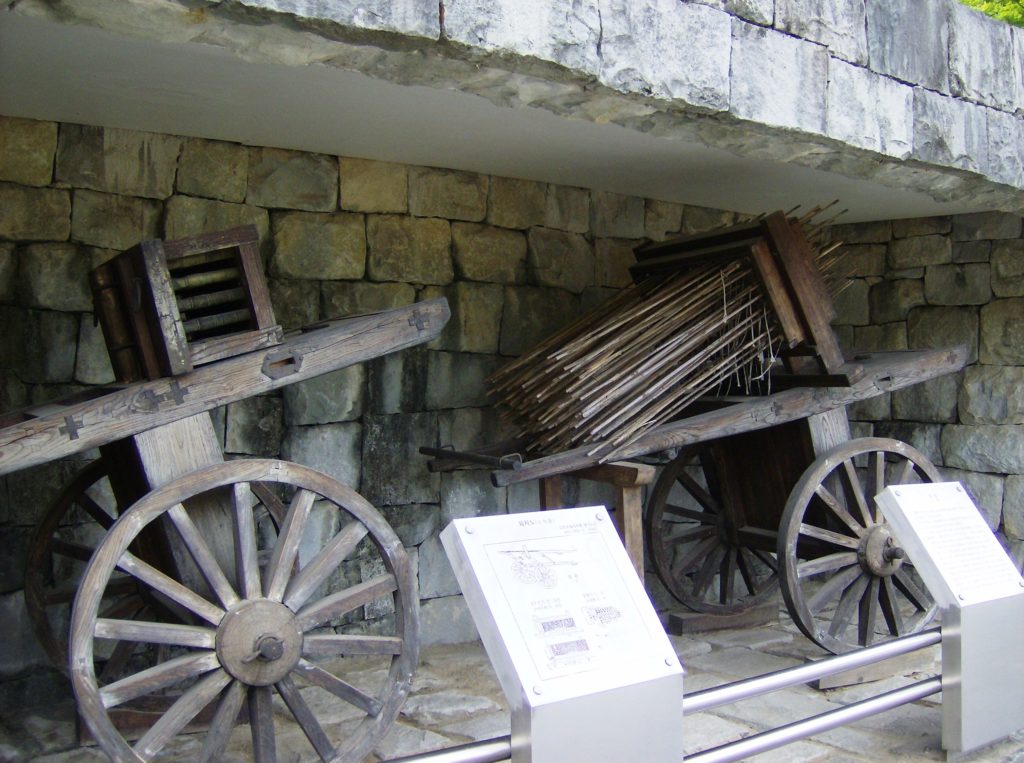What Might Putin Do?
Desperation will tempt a man to try almost anything. A desperate man who lacks virtue — who “has no conscience” as we moderns are wont to say — is more likely to succumb to the temptations of despair. Nothing infuses a man with desperation more thoroughly than the approach of public humiliation and ignominious defeat. And no one fears public humiliation more intensely than a tyrant, whose grip on power depends entirely on maintaining his reputation as terrifyingly powerful. Vladimir Putin is a desperate tyrant without virtue facing the greatest humiliation possible for one in his position, having his reputation, and in the face of his decades of public posturing: a decisive and decimating defeat at the hands of a small, hugely overmatched neighbor that he clearly believed would fall to its knees at the very sight of his fierce army.
In considering Putin’s predicament, those observing (and hence contributing to) his growing desperation may, in calculating the level of threat represented by the specific forms of “anything” that he might be tempted to try, have to weigh the pros and cons of offering him an escape hatch from his desperate predicament. The normal rules of international diplomacy in the UN style will always favor appeasement, under the rubric of “avoiding escalation.” (Putin’s many global apologists and secret fan club members will push the de-escalation agenda as well, although they will frame it as a moral equivalency argument against believing the “anti-Russian propaganda” from the West – but their opinions are irrelevant, since they are in fact arguing from moral identification with the tyrant, which is to say that they themselves are feeling the desperation of approaching humiliation, just as is the shrinking punk to whose fate they have tied their own lives and reputations.) The problem with the appeasement solution, however, is that what you might see as reducing the pressure on the tyrant in order to defuse a danger, the tyrant will invariably see as a surrender to his will, and hence experience as a new level of empowerment and an increased feeling of impunity. This latter interpretation is essential to the tyrant, as it is part of his means of saving face and salvaging his reputation (including his reputation with himself) as an invincible power, from which it follows that this appeasement “solution,” rather than reducing the real risk, only defers it, while in the meantime increasing the amount of harm the tyrant is able to inflict on the world without desperation.
In concrete terms, the current situation has reached the point at which Putin, his forces massively depleted and demoralized, seems ever more likely to resort to chemical, biological, or nuclear weapons to turn the tide in the war. As terrible as this possibility truly is, it must never be forgotten, on the other hand, that the reason the world has arrived at this point is precisely because Putin is desperate, which is to say that he knows he cannot win on conventional grounds. He knows he is facing the public humiliation that the tyrannical man, whose survival depends wholly on his ability to stir fear in his own population and his neighbors, dreads most. The increasingly threatening rhetoric and the increasing sense of near-inevitability regarding the escalation of his wanton brutality are in fact evidence that he knows his real position, in contrast with his rhetoric, is quite weak. Desperately weak.
One must never forget, however, that a tyrant, contrary to his claims of national destiny and love of country, is in reality a soul awash in the petty self-concern of vanity and fear. That, after all, is why reputation is such a high priority to the tyrant, and public humiliation his greatest dread. Yes, desperation will tempt him to enact the stuff of nightmares. But it will also tempt him to other things, depending on the context, and on the sense of his opponents’ resilience. Vladimir Putin, right now, sitting in his luxury bunker somewhere, knows very well that Volodymyr Zelensky is a more impressive and courageous man than he can ever be, and he knows that the whole world knows it too. The level of irreversible shame he has already suffered in this war may prove debilitating to him – if the world refuses to let him squirm out of it with any of his old feeling of impunity intact. His military force has proved to be pathetically less than he imagined, and woefully unprepared for a real war, which will weigh on him in all future planning – if the world rejects all his demands and conditions, and reminds him at every turn that his forces are piddling and patently not up to the fight. His total military power has been depleted in this invasion, which he had obviously judged a safe and easy first step, by a percentage that effectively makes any further efforts unthinkable for the foreseeable future – if the world has the backbone to deny him any hope of saving face in Ukraine.
His desperation will grow with the increasing sense of inevitable defeat. But so will the temptation to other desperate options, as the options related to achieving victory through extremes of brutality begin to appear less realistic. After all, the tyrant’s desperation has nothing to do with his country’s fate, but only his own. He will do nothing “for Russia.” He will do only what he feels he must do to reduce his own fears. As long as his primary fear is losing the war, he may lean toward the most horrible methods of turning the tide. But if victory becomes inconceivable, his primary fear will shift closer to home, and reveal to him a different set of desperate options. It would seem, then, given that emboldening him with concessions even at his moment of defeat would only ensure that the war will “escalate” and spread, that the most reasonable course for the world now would be to increase the pressure on Putin, and thereby further intensify his sense of desperation. This option has obvious risks, but the risks entailed by saving him from himself in Ukraine are, it seems to me, far greater. The Russian cancer, after a brief period of remission, began to spread again over twenty years ago, and no one did anything to stop it. So here we are: no easy solutions, no low-risk options. But that fact in itself is a clear lesson about the result of attempting to defer dealing with this cancer any longer. The risks become greater, not smaller.
Putin has reached the desperation stage of his growing humiliation. It seems that the rational choice would be to push him further along that road now, with nerves of steel, or regret it forever.



